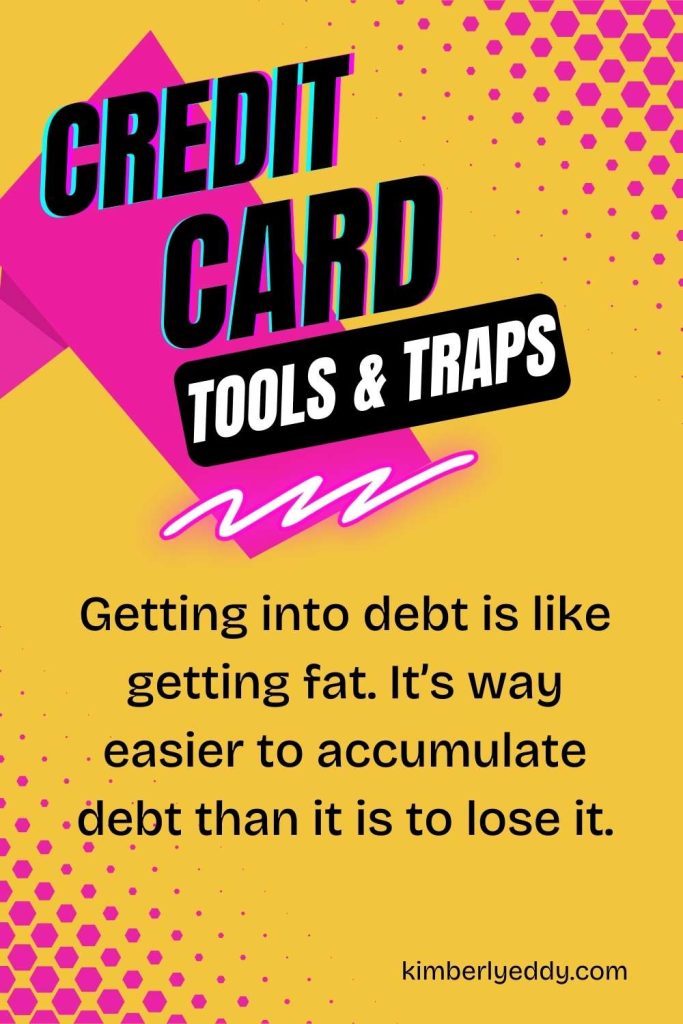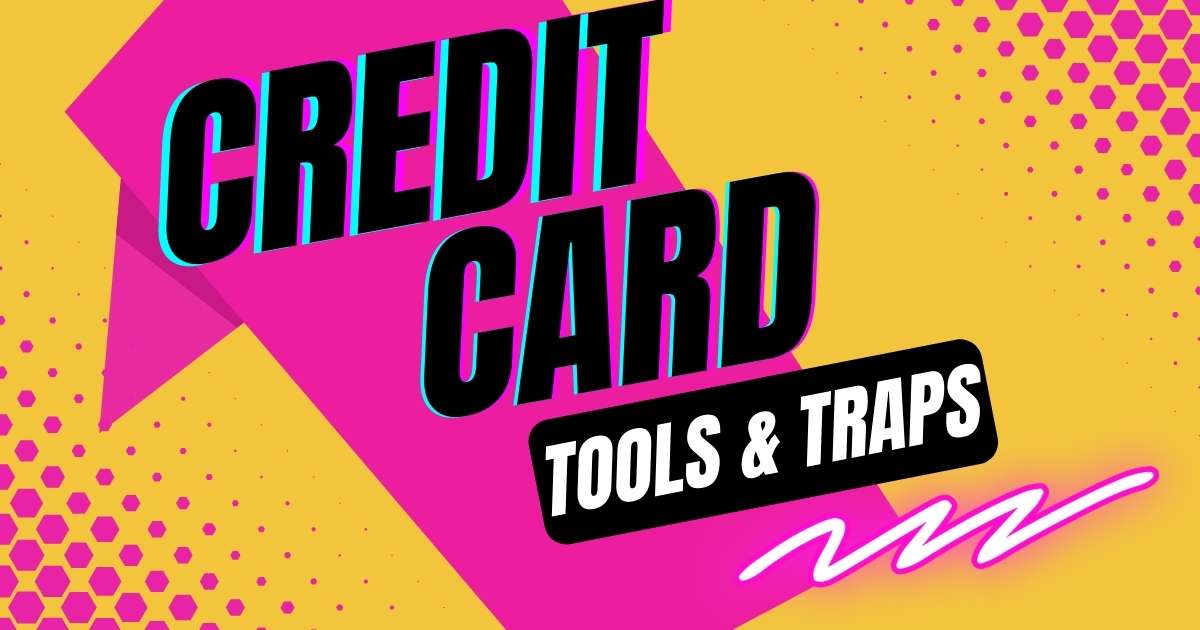When you find yourself in the credit card trap, where you want to pay your card off but don’t have enough to clear the entire balance. Add to that, you also use your card, you might feel frustrated and stuck. Maybe you don’t want to get rid of credit cards altogether, but you also don’t want to throw money away by keeping a balance.
I have been emailing back and forth with a reader on this very topic, so I figured I’d sum it up below.
I’ve been planning out blog posts and going through old articles I’ve written to put them on this blog, while also juggling client work (I’m a website designer) and, of course, having fun and just being.
It’s been an adventure.
One of the surprising things though is finding out people have found this little blog-in-progress so fast. I also do a lot of SEO (Search Engine Optimization) work for clients, so this shocked me to get found so soon. And shared. Wow! And I’m glad the very few things I’ve put on here are helpful.
Drop me a line if you have something specific you’d like to read here.
Credit Cards as a tool
So, back to the question at hand about using credit cards as a tool, but first needing to pay off the balance. I gotcha.
As I mentioned in an earlier blog post, for years I followed the advice of Dave Ramsey and church teachings in which all credit cards are evil, and you shouldn’t have one. And also that credit scores are just an “I love debt score” and they don’t matter.
But then at some point I realized, with DISCIPLINE and WISDOM credit cards are tools to help you be a better steward and credit scores are necessary in life in the 21st century. You can read about that here, as it gives some background information on my views about debt and credit scores.
In particular, rewards cards are a great tool for making a little passive income, and protecting yourself from card skimmers that might empty your bank account when, say, you’re filling up your gas tank. Been there, done that, got the t-shirt.
Once I broke free from the credit card trap, I morphed from someone who was totally debt free, including a mortgage, and no credit cards at all to become the person who puts groceries on the credit card to get the 4% reward. And paying it off at the end of the month.
That’s the trick isn’t it? Paying it off at the end of the month.
The Credit Card Trap
The problem is, you learn little about effectively using credit cards as tools early in life because literally no one teaches you this. They don’t teach it to you in school. Your parents probably don’t know about this. Heck, my poor kids…I didn’t know about this until they were adults. Their entire childhood and adolescence, we were treading water financially.
Compounding interest working for and against you is the most important financial lesson we can learn, and yet no one is teaching it. This is where credit cards can go from tools to being the credit card trap. And it happens way too fast.
Again, I will not get into the whole long story about debt and our family, as you can read it here, and then read more about my views on credit scores here.
How are they a trap? Because it’s too easy sometimes to just keep putting in the card until one day you wake up and you have a balance over $5000 and at 24.4%, and you’re basically hooped unless you also have enough money in the bank to pay that off right now.
Which you don’t, because if you did, you wouldn’t have that balance, right?
One of the reasons why I wrote my books on frugal living (that I am currently reworking) is because of the advice I was getting in other books about “just pay off your credit cards at the end of the month.”
Yeah? Good thinking, Sherlock. Let me just pull a stack of bills out of my rear end.
Getting into debt is like getting fat. It’s way easier to accumulate debt than it is to lose it. You probably already know this. And, if you know this either you had an unusually helpful financial education as a kid, or you learned the hard way via the credit card trap.
Fresh Balances on the move
A few years ago when we worked towards building our credit score, we always, religiously, paid accounts off at the end of the month.
Always. Period.
In the middle of our out-of-state move, however, we accumulated a balance, from gas, renting a moving truck, and all the odds and ends that come up when you move.
I was sick over it. I felt like I had fallen back into the so called credit card trap. All of those emotions and traumas around being in debt last time came rushing back with a feeling of hopelessness and dread.
Ohhhh, we’re in trouble, aren’t we?
Nope. We were not. We were different people, these were different circumstances, and this was not the end. It just took a little time for me to realize that.
Now, I would never say accumulating a balance was a positive thing, but sometimes life happens and you have to acknowledge that and move on. Don’t stress.
Or, as my therapist said,
“But isn’t it a good thing you had 0 balances before the move so that when those expenses came up, you didn’t have to tie up your ready cash? Look at it that way.”
And she’s right.
We were mostly able to pay this off within 6 months. We probably could have paid it off sooner, but we didn’t want to empty our emergency fund to do so, because in our experience, that’s when you find yourself needing your emergency fund.
And we didn’t want to empty the High Interest Savings Account that had the money from the sale of our other house in it. We needed that to buy a house down here.
Credit Card Payoff Options
There were a few options we could do, and which you could do in a similar spot. Not all of these will work for you, but these are the options we considered and some we actually used.

0% Balance Transfers
You don’t want to empty your bank accounts to pay off the debts just in case, but you also don’t want to pay 14% on a credit card balance, right?
So, I went on NerdWallet and found a 0% Balance Transfer card, and put the balance on that. So, no more interest as long as I paid it off in full within 9 months. I calculated what I needed to pay each month, and I did it. And, if I made more than expected while freelancing that month, I’d add some of that on the balance.
And then we paid that sucker off over the course of 6 months.
I should note this one only works if you and everyone who uses your cards are disciplined enough to not run up a debt on the card you just paid off again. You know yourself. There was a time when consolidating debt was a terrible idea for us. Now, we’re more responsible with debt, but we still have to make sure we don’t fall into the trap.
Paying extra on your balance plus new purchases
If you are really in the hole, but you also use your credit card to pay for things like your cell phone bill or other bills (as some require a credit card), pay extra on your balances as if you were paying it off normally. But then also tally up your new purchases each month and pay those off in full.
This method is beneficial for a few reasons.
The first is, you’re not going to just slowly grow a balance despite paying.
The second benefit is building the habit of paying off your cards each month, before you even get to that zero balance by practicing on the regular purchases you make now.
Even when I moved the accrued balance from our out of state move onto the no-interest for 9 months card, I still had regular things that went on my credit cards, like my cell phone bill, or my gas and groceries (Which I receive cash back rewards on). So, even though I wanted to pay off the other balance as fast as possible, I still paid off the use of my card every month.
The third benefit to this is you recognize how you use your cards.
When we were really struggling and every penny counted 20+ years ago, I liked to pay with cash as you felt it more. You realized what was leaving your wallet more clearly. Paying for things like groceries and gas with credit cards is a great way to earn rewards, but you don’t always realize how much you’re spending, and you might not be as careful, knowing you’re putting it on a card. When you take a moment each month, add it up and pay it off, the amounts you’re adding to your cards do become more real.
As a funny side note recently I was in a coffee shop and the two young baristas were saying they felt like they spent more when they used cash because it didn’t feel “real”, and they were more cautious when they used their cards. So, I think there’s a mindset shift that is going on because of how we now pay for things.
Pay a Debt Snowball or Avalanche
There are two ways to pay a debt snowball on your different balances.
The first is to attack the account with the highest interest rate first. The reasoning is that this will save you money in the long term, because of the interest.
While attacking that balance, you’re going to continue to pay the minimum payment (plus any purchases) on any other accounts you have.
Once you pay off the first account, add the extra you were paying towards that account to the minimum payment of the next account, and pay on that until you are done.
The second way to do a debt snowball is to start with the lowest balance (this is the Dave Ramsey version, and I like this one if you have a hard time with financial discipline) .
The reasoning here is that you’ll get a quick win when you pay that one off faster, then you add the amount you were putting towards that balance towards the minimum payment of the next highest account, and pay that off. Eventually, everything will be paid off.
Let me know what you think in the comments below.

Leave a Reply